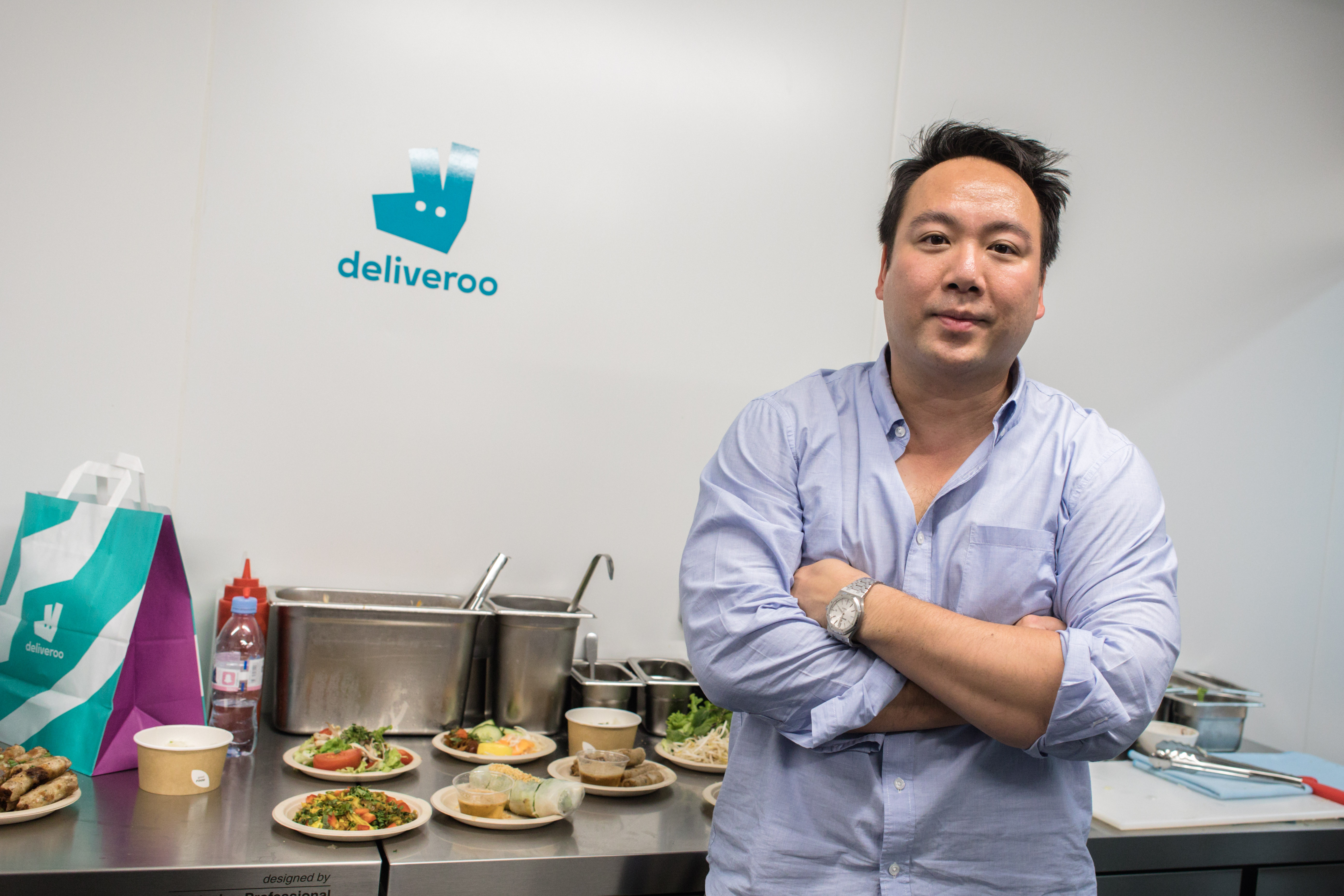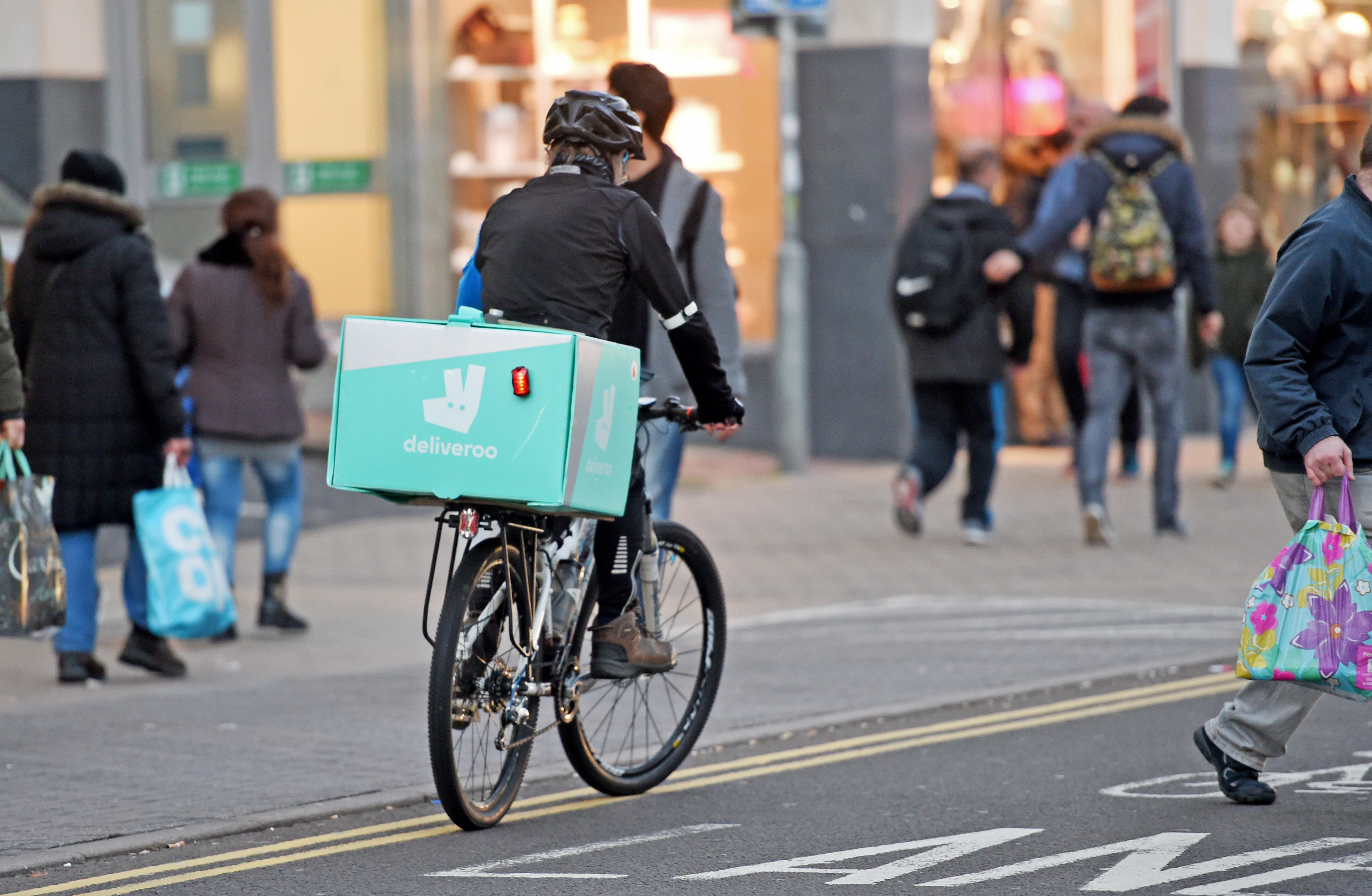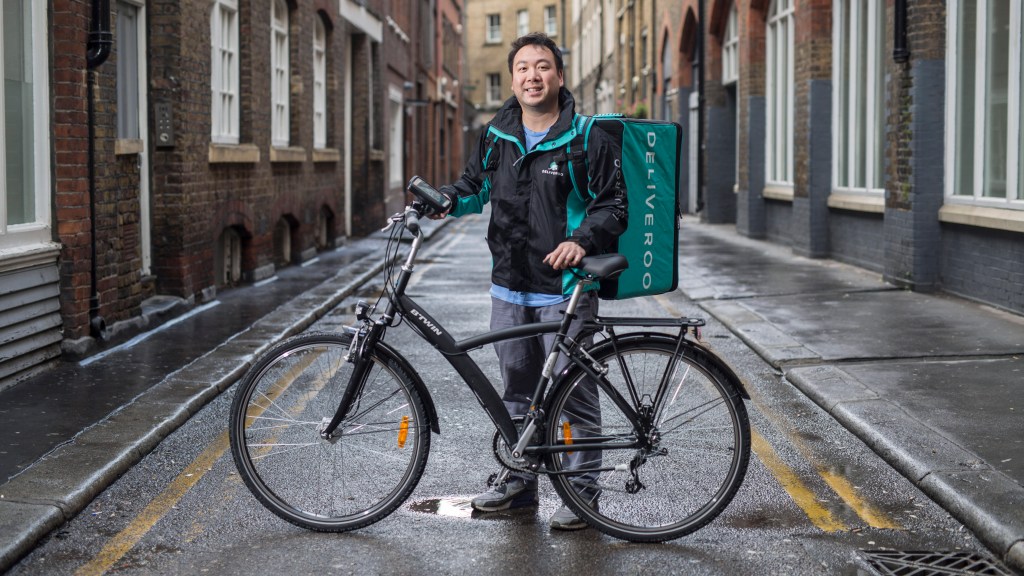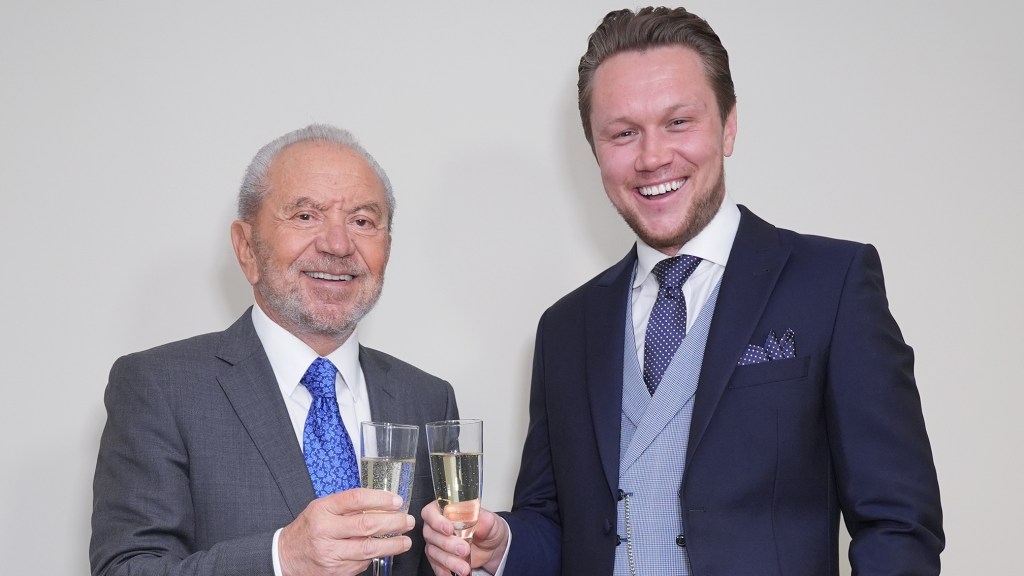Deliveroo’s Will Shu: The UK Remains an Attractive Hub for Entrepreneurs
Will Shu, the chief executive and co-founder of Deliveroo, a leading UK takeaway delivery service, has responded firmly to critics who have branded its stock market introduction a “failure.” Shu asserted that the UK continues to be an excellent environment for launching new businesses.
Recently, Deliveroo consented to an acquisition deal valued at £2.9 billion with the American food delivery giant DoorDash. After its initial public offering (IPO) in 2021, which was priced at £7.6 billion, some investors disparaged the company, dubbing it “Flopperoo” for not meeting expectations of fostering homegrown tech firms in the London Stock Exchange.
Shu, a 45-year-old entrepreneur originally from the United States, remarked, “We went public at a high valuation. Interest rates were extremely low. This coincided with a peak period during the Covid pandemic.” While acknowledging that some critics label Deliveroo a failure, he emphasized, “They can say whatever they want. I don’t see it that way at all.”
For Shu, who has made the UK his home for the past two decades, Deliveroo exemplifies that the UK can nurture competitive tech businesses, irrespective of its initial public offering’s results.
“I don’t dwell on the financial aspects,” noted Shu, a former banker with Morgan Stanley who founded the company out of frustration over limited late-night food options in London. He stated, “We have transformed how people dine, work, and engage in transactions.” He believes that Deliveroo’s former employees have launched around 80 new startups after their time with the company.

Taavet Hinrikus, co-founder and former CEO of the London-based money transfer service Wise, remarked that acquisitions and sales of companies are typical within the business lifecycle, emphasizing that the food delivery sector requires consolidation, and the Deliveroo deal is a part of that evolution.
Hinrikus, who is also a partner at the London venture capital firm Plural, further suggested that this acquisition could generate considerable capital for reinvestment in the tech ecosystem, enabling more startups to emerge from Deliveroo’s legacy.
Optimism abounds regarding the British tech industry. The State of European Tech 2024 report indicates that the UK’s tech workforce surged from 142,000 to 834,000 over the past decade, with the number of homegrown unicorns—firms valued over $1 billion—growing from 36 to 130.
Nevertheless, some proponents of UK tech express concern that domestic support for founders may be limited, with the Deliveroo acquisition highlighting this ongoing trend.
For instance, the Cambridge chip designer Arm was acquired off the London Stock Exchange for £24 billion in 2016, subsequently skyrocketing to a valuation of $122 billion in the US marketplace. Similarly, cybersecurity firm Darktrace, also from Cambridge, was purchased by US private equity firm Thoma Bravo for $5.3 billion last year.
Brent Hoberman, co-founder and executive chairman of Founders Forum Group, noted the negative implications of these trends, highlighting the liquidity challenges in the London market. He also identified a shortage of tech-savvy financial analysts in London, which hinders investor understanding of new companies.
However, Shu remains optimistic about these concerns, stating, “I don’t believe that an exchange’s location will determine your success. It’s about building great companies, and whether you’re listed in London or New York, strong execution over time will lead to success.” He also mentioned that he finds the broader impact on the UK economy, beyond London, less dependent on a company’s stock market listing.
Concerning Deliveroo’s fluctuating share prices, Shu highlighted that the company’s values peaked months after its IPO at just under £4, only to later drop to as low as 70p, while DoorDash is acquiring shares at £1.80 each.
“So if you purchased shares at 70p, you made a significant gain,” Shu reflected. “To me, the IPO price is just a financing moment and not a definitive measure of success.”
Shu, who is undecided on his future at Deliveroo or if he will launch another venture, stated that he still sees the UK as an excellent place for entrepreneurship. “The talent here is among the best in the world, certainly the best in Europe, and you can grow a substantial business in this environment,” he explained.
He also opined that comparisons of valuations between the US and the UK are peculiar because UK companies can be just as exceptional as those in the US, although the market size is smaller. When asked about UK businesses with considerable US customer bases, he expressed confidence in their future success.

Despite the optimism, some experts argue that substantial changes in the UK startup landscape require proactive measures from governmental authorities.
James Wise, a partner at Balderton, a London venture capital firm, noted that there are numerous UK companies, like Wayve and Revolut, that are focusing on scaling rather than selling, with the potential to reach valuations of £100 billion and create numerous jobs along the way. However, he stressed that various obstacles to scaling in the UK remain, making such success stories scarce, especially after recent budget decisions that increased taxes.
Wise urged for rapid action on initiatives like the AI action plan to enable the UK to build companies of a scale comparable to those in the US or China.
Contrarily, Shu dismissed the importance of tax rates in starting a business. “No one prefers high taxes, but the motivating factor for starting a business is the belief in an idea and the conviction that it can succeed within a predictable and fair system. These principles should be what the government prioritizes,” he posited.
He further expressed a desire for a more positive perception of business and technology within the UK. “I believe the fear of failure and personal reputation inhibits risk-taking in this country,” he stated. “We should celebrate those striving to build businesses.”




Post Comment